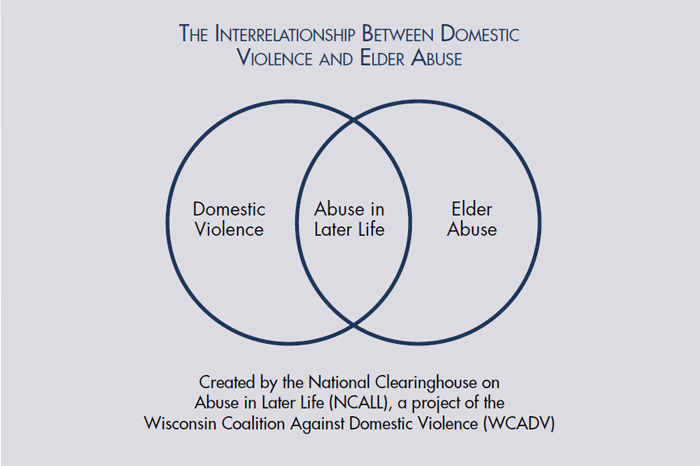This is a Supervisory Course
What is Domestic Abuse in later Life?
To provide training on domestic abuse in later life, trainers must understand the dynamics of these cases. Additional resources for trainers are listed in tab 12.
The World Health Organization defines elder abuse as “a single, or repeated act, or lack of appropriate action, occurring within any relationship where there is an expectation of trust, which causes harm or distress to an older person.” (www.who.int/ageing/projects/elder_abuse/en) Domestic abuse is a pattern of coercive tactics that abusers use to gain and maintain power and control over their victims. Abusers believe they are entitled to use any method necessary to control their victims. Domestic violence and sexual abuse in later life are subsets of elder abuse. For
more information on domestic abuse in later life, go to the Web site of the National Clearinghouse on Abuse in Later Life (NCALL) at www.ncall.us.

For this project, abuse in later life is defined by the following components:
Age. Victims are age 50 or older. NCALL chose this age because many domestic abuse programs serve primarily women in their 20s to 40s. By age 50, there may already be a significant dropoff in the number of women accessing services. In addition, women ages 50–62 may need economic assistance to acquire safe housing and care so they may leave an abuser.

